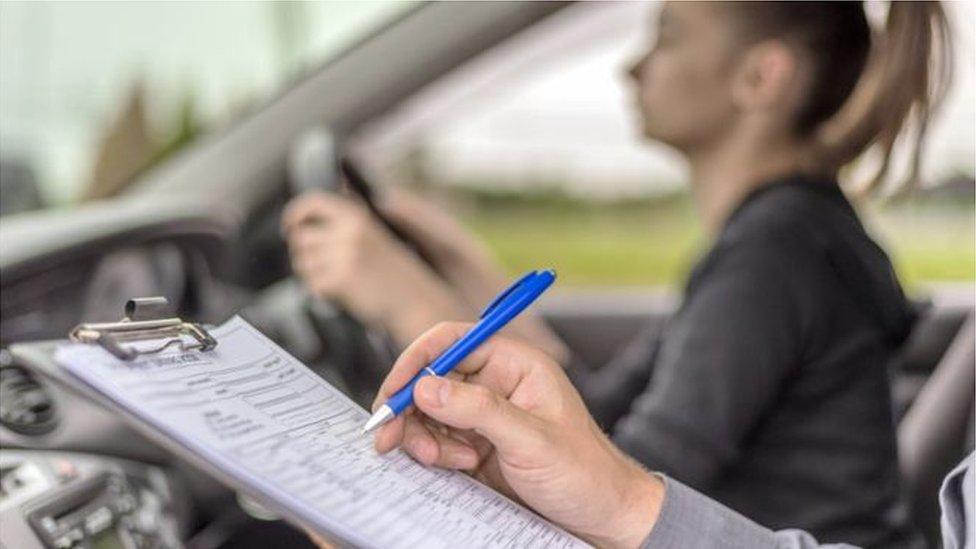Driving test: Gender gap in Northern Ireland pass rates narrowing
- Published
Women are narrowing the gender gap in the practical driving test pass rates across Northern Ireland
Women are narrowing the gender gap in driving test pass rates across Northern Ireland, new figures have shown.
Historically men have been more successful in passing their practical car driver test in the UK.
Before the pandemic in Northern Ireland, there was a difference of up to about eight percentage points in favour of men.
However, since driver testing resumed in the summer of 2020, the gap has shrunk to about two percentage points.
In total, during the last quarter of 2022/23, men had a pass rate of 54.6% while the rate for women was 52.7%.
The Department for Infrastructure (DfI) said it was too soon to say if this will be a permanent reduction.
The figures are published by the department and are calculated each year as a four-quarter rolling average based on the number of tests carried out.
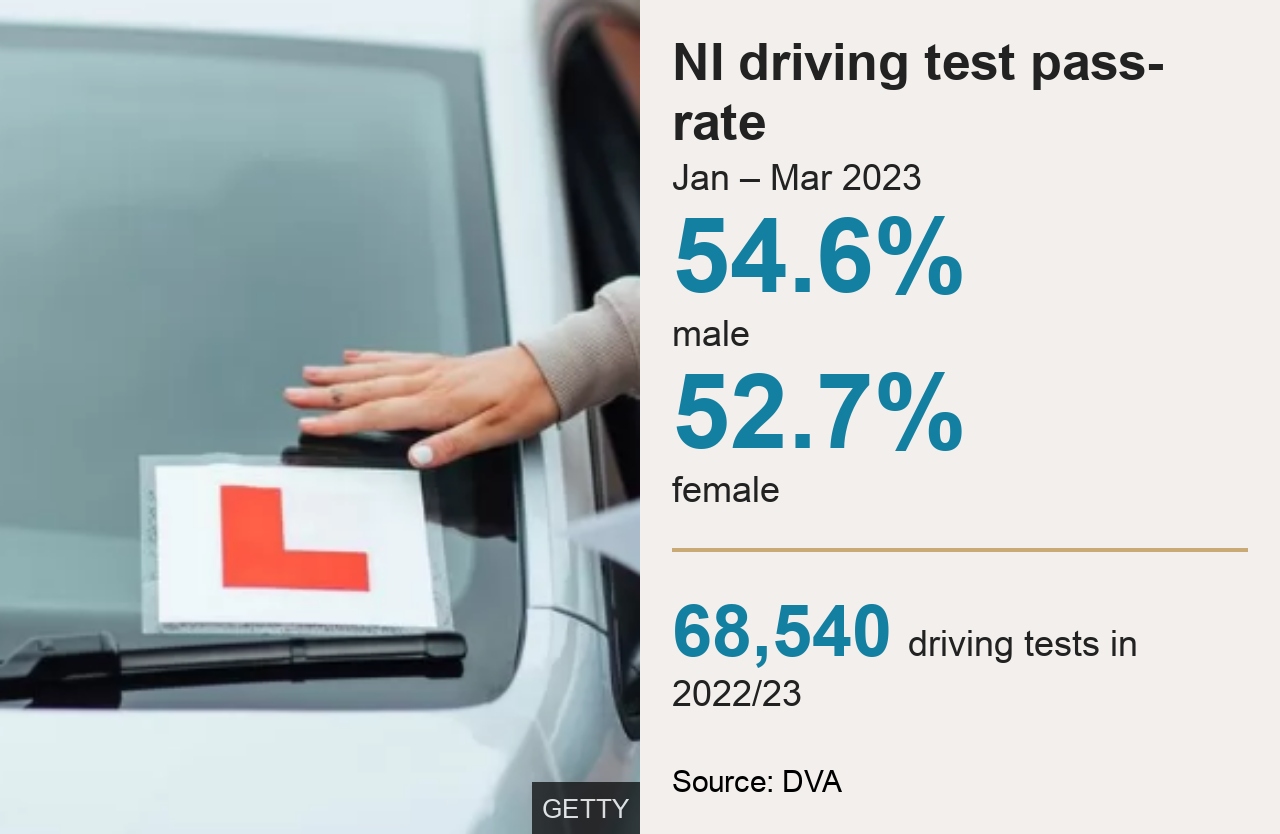
Prior to the outbreak of Covid-19, the number of people going for driving tests had remained relatively steady.
But since lockdown ended in Northern Ireland, there have been higher numbers of young people presenting for a driving test.
The latest available figures from Great Britain show there was a six percentage point gap between male and female pass rates before the pandemic.
The 2022/23 data for England, Scotland and Wales is not available until later this year.
Individual test centres in Northern Ireland offering private car driving tests also reflect the gender gap disparity to varying degrees.
Some test centres show a gap in favour of women - for example, the pass rate for females was 55.8% while it was 51.8% for males.
In Newtownards it was 43.2% in favour of women compared 42.9% for men.
In the last year, there were 68,540 driving tests conducted in Northern Ireland, the highest on record in 13 years.
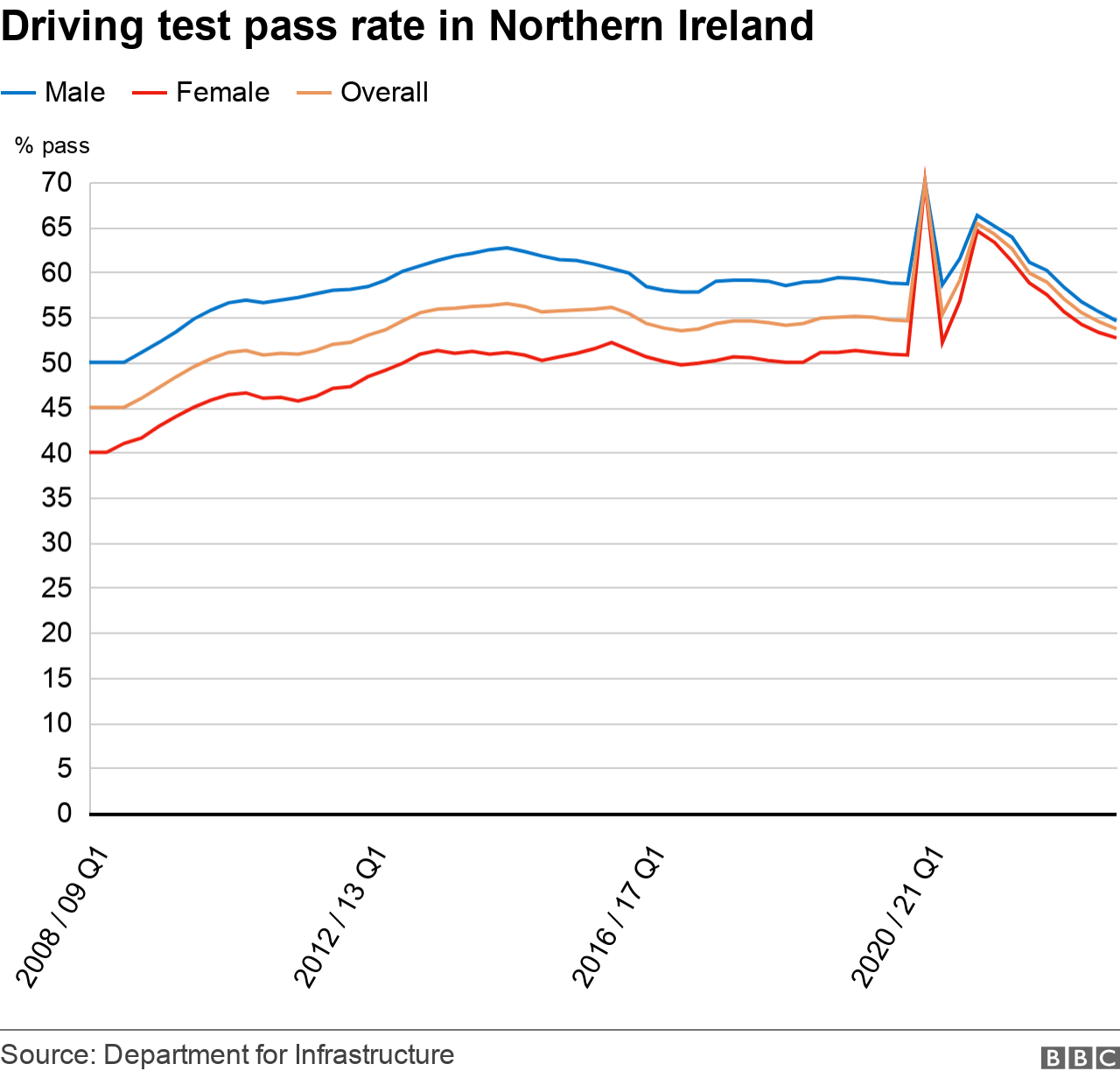
Women in Northern Ireland have also been outperforming men in the driving theory test for the last decade.
For the 2022/23 financial year, the theory pass rate for women was 41.2% and 40.2% for men.
The higher pass rates for women in the theory test is also replicated in Great Britain.
'It gives me freedom'
Sophie, a 17-year-old from Dungannon, County Tyrone, passed her practical driving test in December.
"I was really pleased getting my practical test first time, although I dreaded parallel parking and still do," she said.
Sophie said she's enjoying her increased more independence.
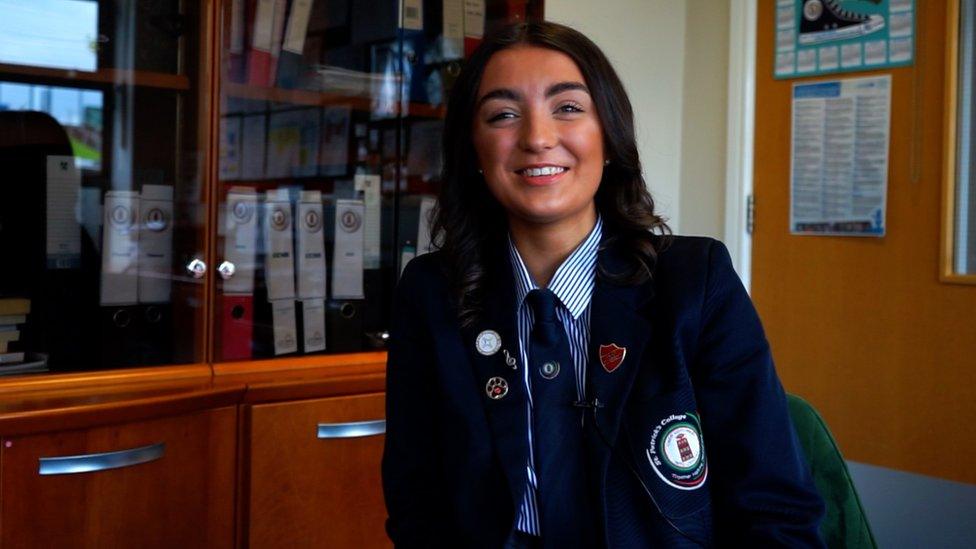
Sophie passed her driving test in December
"Before this I would have had to take the bus in to school, now I can give my sister a lift as well. So it gives us a lot more time and flexibility in the mornings.
"I also work part-time in a restaurant, so it's given me a lot of freedom to get to and from there on my own."
She added: "I'm also going to County Clare for university, it's about a four-hour drive, but it's going to be great to have the car because it'll be easier to come up and down from university to see friends and family."
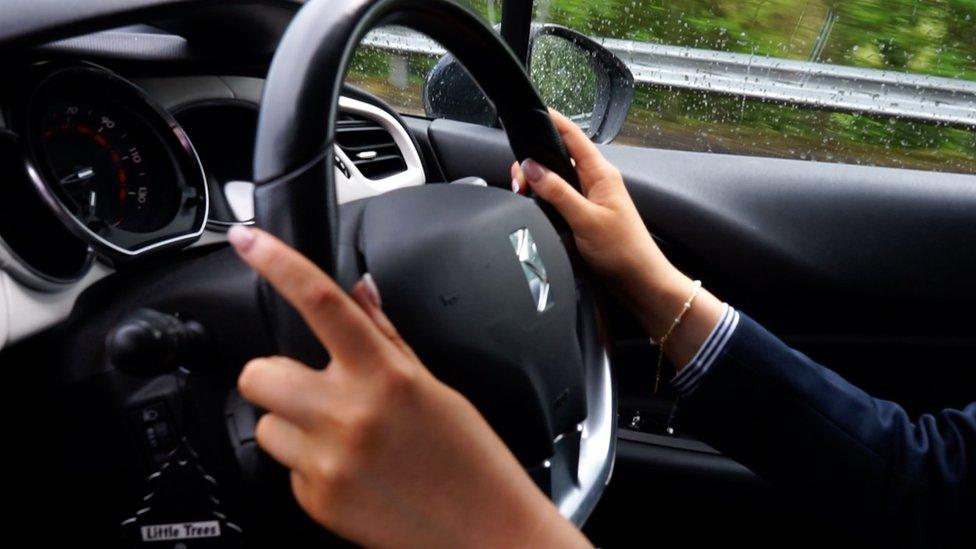
The higher pass rates for women in the theory test is also replicated in Great Britain
Sophie is encouraged by the latest statistics on driving test pass rates.
"I'm very proud girls are closing the gap, I think it breaks down those barriers and stigmas about girls not driving as well or taking longer to get their tests," she said.
"From my experience my other female friends and I are quite conscious and careful on the road, particularly when we're starting out as new drivers."
'Outdated stereotypes'
Roisin Shields, a teacher at St Patrick's College in County Tyrone, has helped organised a number of driving awareness events for pupils.
"I'm not surprised at these latest figures on pass rates," she said.
"The girls in this school are showing in every area, including subjects that are traditionally for boys like engineering, that they can lead the way.
"So it's great that when it comes to driving that these outdated gender stereotypes are being broken down too, because driving is for everyone and both genders can excel at the same level."
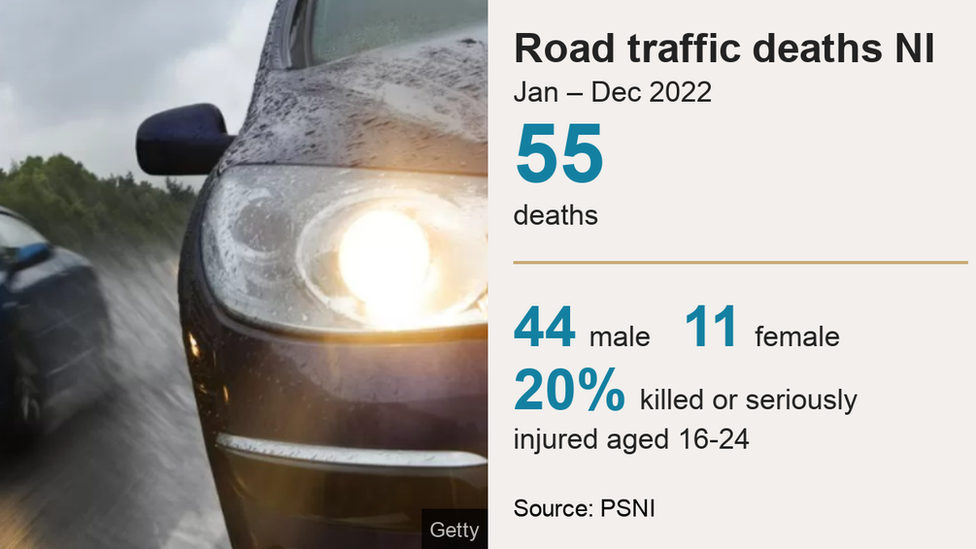
Mrs Shields said her school has taken part in a number of road safety shows involving the police, which simulate the aftermath of a crash.
She said: "We take road safety very seriously, because many of our young people are learning to drive while at school, we try to prepare them as best we can.
"Sometimes young people think they're invincible, so it's about making them remember when they're on the road they're responsible for themselves, for their passengers and other road users."
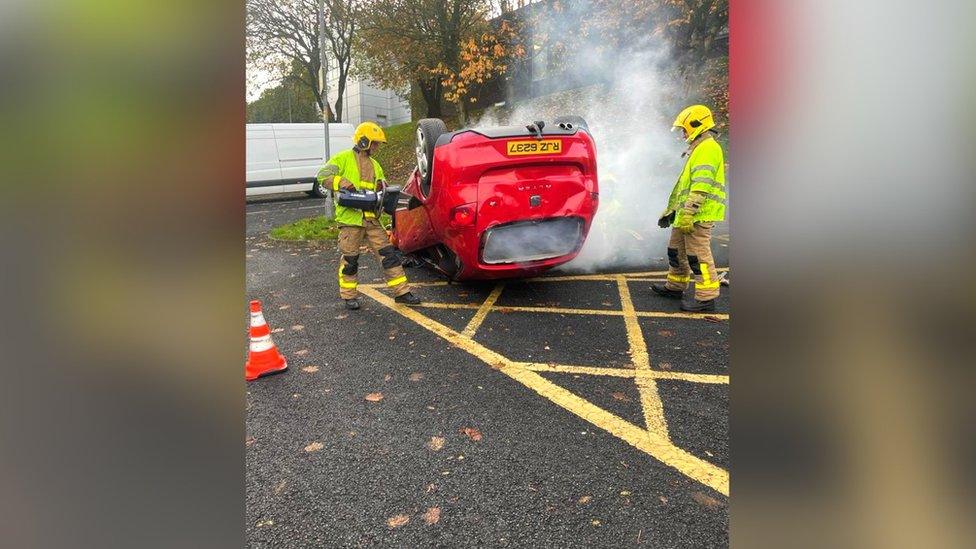
School pupils are given a demonstration of a simulated crash
The charity Road Safe NI has recently launched a number of educational short films aimed at primary school pupils across Northern Ireland.
Davy Jackson, the organisation's chairperson, said: "The videos feature our mascot Road Safe Roary giving life-saving road safety tips to a vulnerable age group.
"We believe it is now more important than ever that children are reminded of the dangers on our roads.
"Children are one of the most vulnerable road-user groups but, with education, they can reduce the risks."
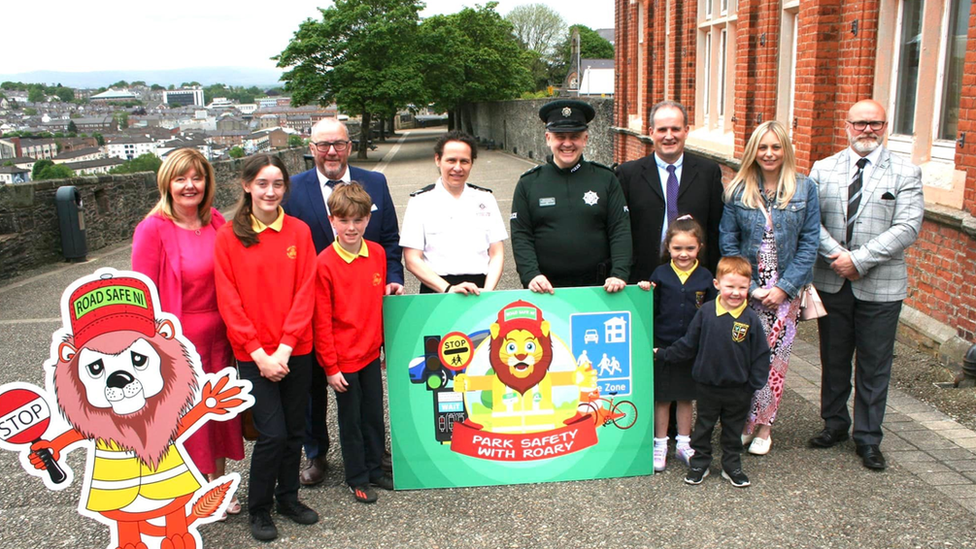
Road Safe NI have recently launched a number of educational short films aimed at primary school pupils
Meanwhile, six months on from passing her test, Sophie has some advice for any young people getting ready to take on parallel parking whilst under the watchful eye of an examiner.
"Keep practising, keep calm, keep going and have faith in yourself."
Related topics
- Published27 July 2019
